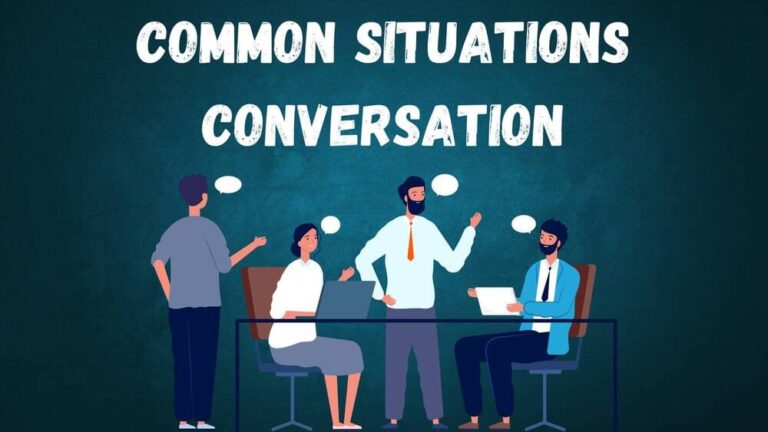
The need to learn how to tackle Common situations of conversation and how to conversate in this digital time is significant because most successful people in today’s world have one quality in common- they are good at conversation.
Table of Contents
ToggleYou might have seen people who conversate well, highly socialized, and influential figures in their surroundings. And all of this is because of superficial reasons- they connect with people on a deeper level, understand their perspective, and build relations based on mutual understanding.
Conversation is the mutual exchange of dialogues between two or more people. The learning and enlargement of conversational skills is a vital part of socialization.
Here are some examples of daily everyday conversation situations like shopping, ordering food, and making appointments which you can use when you encounter such cases to become good enough in exchange.
1. Shopping

While conversing in English during shopping, it’s essential to know the vocabulary for different types of stores, products, and payment methods.
Here are some common phrases and vocabulary to use in Common Situations of Conversation especially when shopping:
Greetings
When entering a store, it’s common to greet the staff with a friendly Hello or Hi.
Example: Hi there, Nice to see you. OR
Hello, how are you?
Asking for help
If you need any assistance in finding a specific product or have a question, you can ask the staff for help.
Example: Excuse me, can you help me find the shirts?
Trying on clothes
If you want to try on clothes, you can ask the staff for a fitting room.
Example: Can I try this shirt on in a fitting room?
Payment
When you’re ready to purchase, you can ask for the total cost and pay with cash, credit card, or debit card. Example: How much does this cost? I’ll settle with my credit card.
Note: Want to know about Common mistakes to avoid while speaking English click Here.
2. Ordering Food:
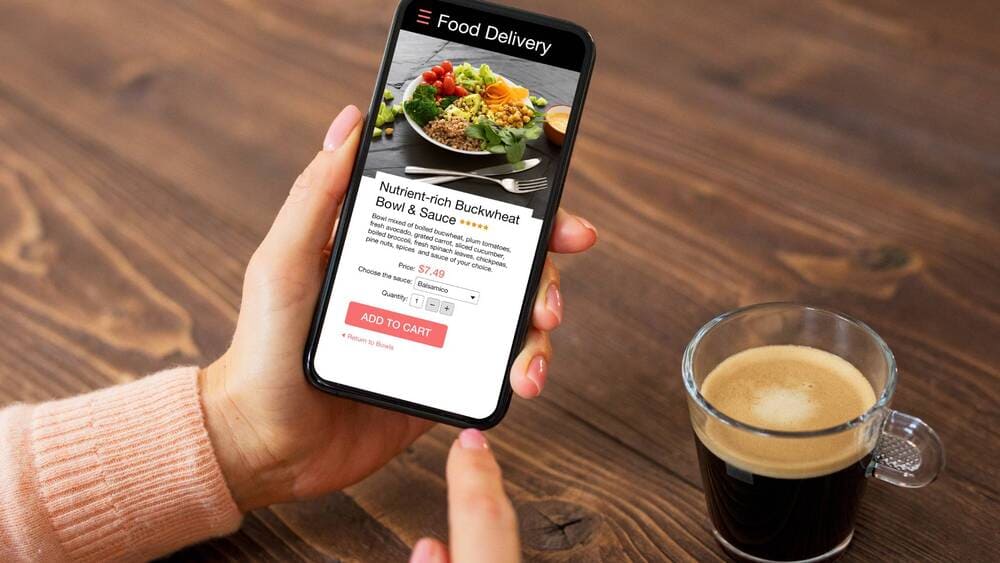
Here are some common phrases and vocabulary to use when ordering food:
While conversing in English while ordering food, it’s essential to know the vocabulary for various dishes, ingredients, and flavors.
Greeting
When entering a restaurant, it’s an excellent practice to greet the staff with a friendly hello or hi. Example: Hi, how are you today?
Ordering
To order food, you can ask the server for recommendations or describe what you want.
Can you recommend a dish with seafood? OR
I want a vegetarian pizza with extra cheese.
Special requests
If you have any special requests or dietary restrictions, you can inform the server.
Example: Can I have the salad without the bacon? I’m allergic to nuts. Can you make sure my dish doesn’t have any?
Payment
When you’re finished with your meal, you can ask for the check and pay with cash, credit card, or debit card.
Example: Can I have the check, please? I’ll pay with my credit card.
In conclusion, shopping and ordering food are everyday situations in daily conversation.
By using the appropriate vocabulary and phrases, you can communicate effectively with the staff and make your experience more enjoyable.
Remember to be polite, clear, and specific with your requests. Practice these skills in different social situations to improve your English communication.
Restaurant reservation
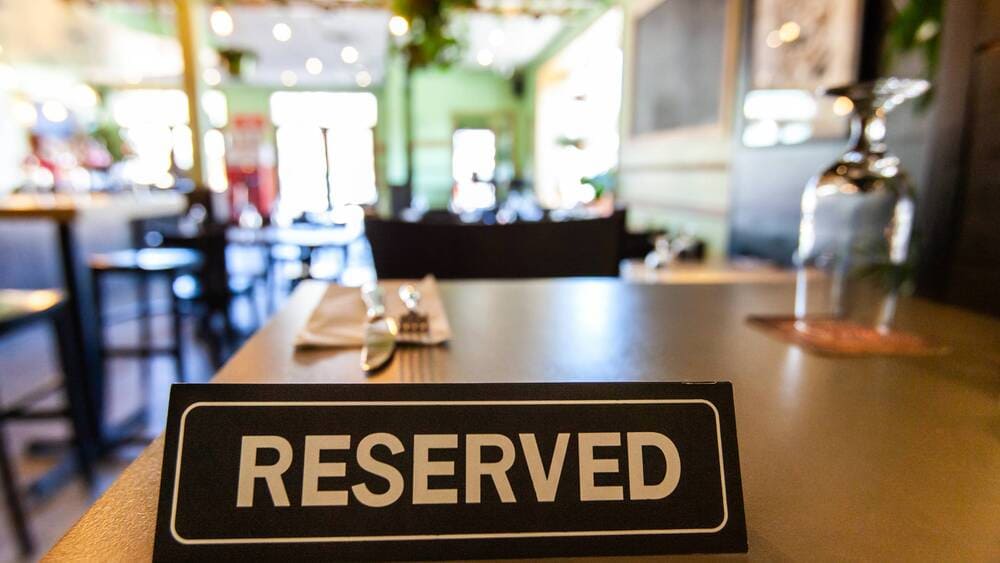
Requesting a table
You can request a table or seating area when making a restaurant reservation.
Example: Can I request a table near the window?
Number of guests
When making a restaurant reservation, it’s essential to specify the number of guests in your party.
Example: I would like to make a reservation for four people.
Special requests
If you have any special requests or dietary restrictions, you can inform the restaurant staff.
Example: Can you make sure my table doesn’t have any peanuts? I have a severe allergy.
Making appointments and reservations requires clear communication and specific requests. By using the appropriate phrases and vocabulary, you can make the process smoother and ensure that you get the service you need.
Making appointments and reservations
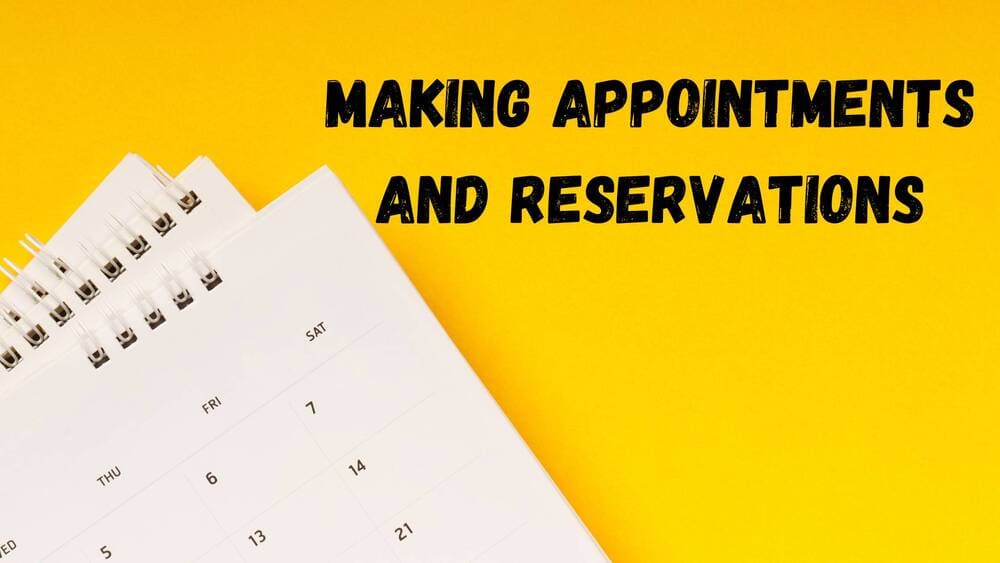
Making appointments and reservations is an essential aspect of daily life, and knowing how to do it in English is necessary.
Here are some common phrases and vocabulary to use when making appointments and reservations:
Greetings
When calling to make an appointment or reservation, it’s common to greet the person on the other end with a friendly hello or hi.
Example: Hello, how are you today?
Identifying yourself
When making an appointment or reservation, you must introduce yourself and provide your contact information.
Example: My name is John Smith, and I would like to make an appointment with Dr. Brown. Can I provide my phone number?
Scheduling
When making an appointment or reservation, you shall introduce yourself and provide your contact information.
Example: I’m available next Wednesday at 9:00 am. Can I schedule my appointment for then?
Confirming
After scheduling an appointment or reservation, confirming the details with the person you’re speaking with is essential.
Example: To confirm, my appointment with Dr. Brown is next Wednesday at 9:00 am. Is that correct?
Cancelling or rescheduling
If you need to reschedule or cancel an appointment or reservation, it’s crucial to inform the person as soon as possible.
Example: I’m sorry, but I need to cancel my appointment. Can I reschedule for next Thursday?
More examples of common situations of conversation.
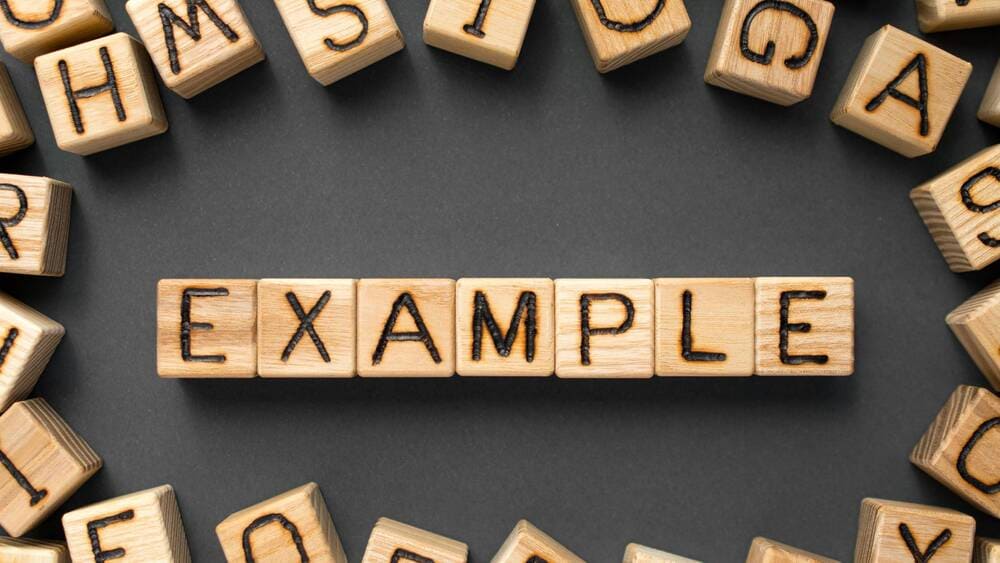
Example 1: Making a Doctor’s Appointment
Person A: Good morning. How may I assist you today?
Person B: Hi, I would like to schedule an appointment with Dr. Johnson.
Person A: Sure; when would you like to come in?
Person B: I’m free on Tuesday afternoon. Do you have any available slots around 2 pm?
Person A: Let me check. Yes, we have an opening at 2:15 pm. Does that work for you?
Person B: Yes, that’s perfect. Please confirm the appointment and send me a reminder.
Example 2: Making a Hair Salon Appointment
Person A: Hello, Bella’s Hair Salon. How can I help you?
Person B: Hi, I’d like to book an appointment for a haircut and color with your stylist, Maria.
Person A: Sure; when were you thinking?
Person B: How about next Thursday afternoon around 3 pm?
Person A: I’m sorry, Maria is unavailable at that time. But we have an opening on Saturday at 11 am.
Person B: Okay, I’ll take that. Please confirm the appointment.
Example 3: Making a Restaurant Reservation
Person A: Good evening. Thank you for calling The Chef’s Table. How may I assist you?
Person B: Hi, I’d like to make a reservation for two on Friday night.
Person A: Sure; what time would you like to come in?
Person B: How about 7:30 pm?
Person A: Okay, we have a table available at that time. Would you like to be seated inside or outside?
Person B: Inside, please.
Person A: Great. Can I have your name and phone number to confirm the reservation?
Example 4: Talking About the Weather
Person A: Hi, how’s it going?
Person B: Good. It’s a beautiful day today.
Person A: Yes, it’s sunny and warm. I’m thinking of going to the beach later. What about you?
Person B: That sounds like a good idea. I might go for a hike in the mountains. Is it going to stay sunny all day?
Person A: I think so. The weather forecast predicts it will be sunny and warm all day.
Example 5: Talking About Transportation
Person A: Excuse me, how can I get to the airport from here?
Person B: You can take the subway to the city center and then transfer to the airport shuttle bus.
Person A: How long does that take?
Person B: Depending on traffic, it should take about half an hour.
Person A: Okay, thanks for your help. Where can I buy a subway ticket?
Person B: There’s a ticket booth over there, next to the entrance.
Example 6: Talking About a Delayed Train
Person A: Hey, have you heard about the train to Boston?
Person B: No, what happened?
Person A: It’s been delayed for two hours due to a mechanical problem.
Person B: That’s frustrating. Did they say when it will arrive?
Person A: Still waiting. They’re still working on the problem. I might have to reschedule my meeting in Boston.
Person B: That’s a good idea. Can you take a bus or a taxi instead?
These examples demonstrate how to talk in everyday common situations of conversation, using appropriate language and expressions to communicate effectively. Practice these conversations with a friend or a language exchange partner to improve your speaking skills and build confidence in daily English communication.

